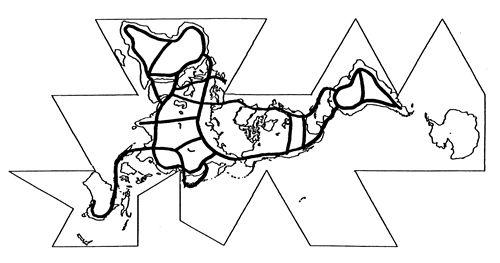India: Minister of State for Defense M. M. Pallam Raju on 7 July said India is concerned about China's plans to build a rail link with Pakistan through the Karakoram mountain range, The Times of India reported. He said India is planning to take countermeasures against the proposed link.
Comment: This is one of four strategically significant rail projects in Asia. All are important in the UN master plan for Asian railroads, but several stand out.
The first is the Chinese project to build a railroad line in Afghanistan that runs southward from the Oxus River to China's Aynak Copper Mine in Logar Province. This is one of the largest, if not the largest, copper deposit in the world. Eventually it could become the leading edge of mineral extraction projects that could transform Afghanistan a generation from now, if security conditions permit.
The second project is the Iranian railroad to Herat, in western Afghanistan. This is moving ahead slowly, but follows a hard road already built by the Iranians. It will tie relatively quiet Herat and western Afghanistan to the economic market area of Mashhad, Iran's second largest city, when completed.
The third rail project with strategic significance is in North Korea, which has two sub-projects that can complete the link of Europe by rail to Japan. Completion of these long delayed spurs depend on whether whoever runs anything in North Korea ever gets a sound grip on their own economic best interests and permit upgrades to the Chinese and to the Russian spurs that run across the Demilitarized Zone and link to the South Korean rail systems that terminate at Pusan. A ferry ride across the Tsushima Strait links to Japan railroads and Tokyo. London to Tokyo by rail is in sight, if the North Koreans would only decide to become prosperous.
The latest project is that announced for Pakistan. In the 1971 general war with India, only Chinese truck convoys through the Karakoram Mountains via the Khunjerab Pass kept Pakistan in the war for the two weeks it actually fought before suing for peace and losing East Pakistan.
The Khunjerab Pass is the highest elevation paved international border at 15,400 ft above sea level. The railroad would presumably follow the Karakoram Highway, which is the highest paved road in the world.
A rail link through those mountains and that pass would link Xinjiang, China, to Karachi and Gwadar – the Chinese built port in southwestern Pakistan on the Indian Ocean — via the Pakistani rail system. The throughput capacity would be exponentially larger than that achievable by truck convoys.
This railroad will create a new market system. No wonder India is concerned, economically and militarily. Pakistan really would become an extension of the new Chinese economic empire. All China needs to do is to complete railroads through Burma and link the Afghanistan line to Iran and it will have an Asian rail empire, within a generation, all the way to the English Channel without using the Trans-Siberian.
Phi Beta Iota: This is the kind of strategic analysis rooted in solid intellect that should characterize the entire US Intelligence Community, not one lone individual. Three big things appear to be looming on the horizon: free cellular around the planet, monetizing the transactions instead of the connections; low-cost rail (and eventually the Buckminster Fuller electrical grid) girding the globe; and finally, the up-ending of capitalism to focus on the needs–and wealth-creating capabilities–of the five billion poor. No one in Washington, London, Paris, Bonn, or Toyko–or even New Delhi and Jakarta where they have the most to gain–is thinking about this. That is a crime against humanity, a moral and intellectual atrocity so horrendous as to call into question the legitimacy of every government.






